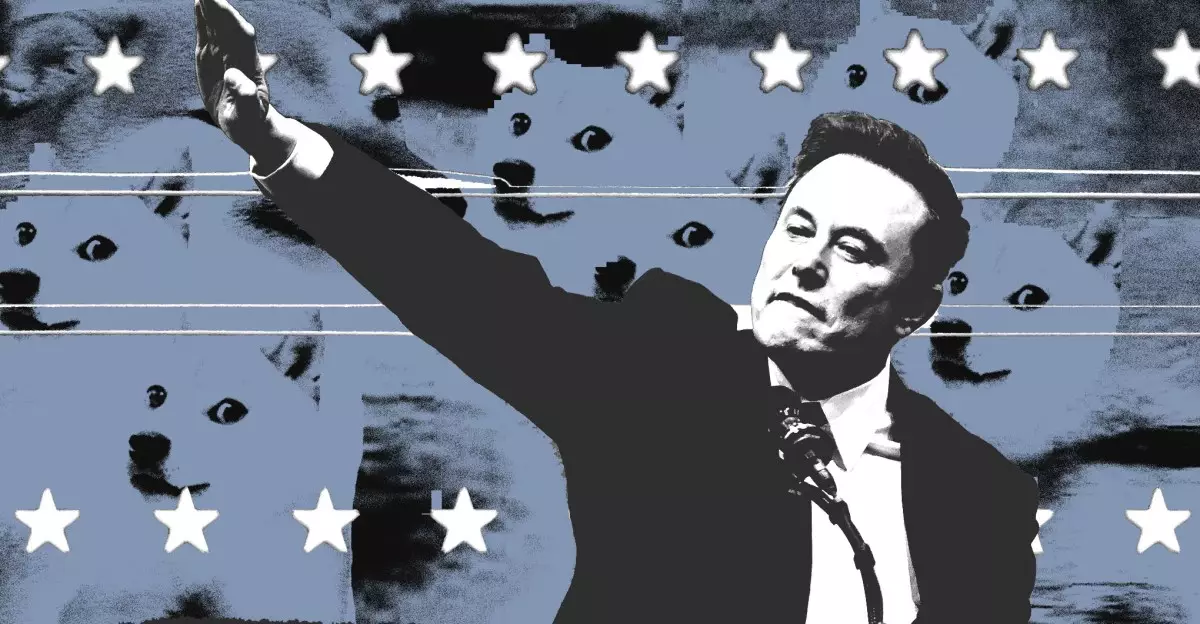The recent political landscape has unveiled some alarming trends that call for an in-depth examination of the ideologies being harbored within the ranks of government staffers. The case of Marko Elez, a young employee of the Department of Government Efficiency (DOGE), has drawn attention to a troubling phenomenon in American politics where extremist views are being normalized among certain circles. His resignation following the discovery of a social media account linked to him revealing advocacy for eugenics and a radical reinterpretation of civil rights laws is not merely an isolated incident but part of a broader issue that demands scrutiny.
Elez, who at just 25 years of age held significant access to the Treasury Department’s payment systems, was unearthed to have posted inflammatory opinions on a social media account that has since been deleted. His comments, including a dismissive stance towards Indian H-1B visa holders, were alarming not just for their racist undertones but also for what they represent in contemporary political discourse. The account had called for repealing the Civil Rights Act, which echoes a sentiment among some far-right factions advocating for eugenics-based immigration policies.
The implications of this are far-reaching; for a young staffer in such a key governmental role, these views are indicative of a worrying trend towards accepting overtly racialized rhetoric among policy influencers. The disquieting term “groyperfication,” cited by writer John Ganz, encapsulates this shift, highlighting younger conservatives increasingly drawn to extreme online ideologies linked to white supremacy and other exclusionary beliefs. This proliferation of toxic beliefs, now infiltrating positions of power within government, illustrates the potential for dangerous policies to emerge from what should be the bastions of democratic governance.
Elez was positioned within DOGE, a department that has garnered attention for its controversial agenda aligned with Elon Musk’s purported crusade against what they term as “woke” ideologies. Their approach has systematically targeted Diversity, Equity, and Inclusion (DEI) programs, portraying them as detrimental to efficiency and effectiveness in government operations. This ideological shift has resonated with a faction of the populace that feels marginalized by contemporary social policies, effectively giving a new platform to exclusionary rhetoric.
The significance of this goes beyond mere policy discussions; it speaks volumes about the changing nature of political engagement and the tacit approval of extreme views within the GOP framework. By dismantling DEI programs and suggesting that competence is exclusively tied to racial identity, the administration is not just engaging in a controversial budgetary procedure but is endorsing a regressive narrative that threatens the foundational principles of equity in governance.
The resignation of Elez contrasts sharply with the continued employment of other staffers, such as Darren Beattie, who has openly celebrated the dismantling of DEI efforts while maintaining connections to extremist ideologies. The message from the top appears muddled—while some like Elez are made to resign for past transgressions, others are rewarded or permitted to remain, suggesting a double standard that can only undermine the credibility of the administration.
This inconsistency raises pertinent questions about accountability within political institutions. Are we witnessing a calculated purging of certain extremist elements while simultaneously turning a blind eye to others who express similar sentiments? How can we trust an administration that emphasizes more traditional moral values while simultaneously patronizing individuals espousing violent and discriminatory ideologies?
As this narrative unfolds, it serves as a critical lens through which we must view the staffing and ideological vetting processes within government. The case of Marko Elez is emblematic of deeper issues at play within the political landscape. The entrenchment of extremist beliefs within the government workforce is alarming, particularly when these individuals play significant roles in shaping public policy. Moving forward, it is imperative for both the public and lawmakers to advocate for a more comprehensive evaluation of the ideologies of those in power, ensuring that the values of inclusivity and justice prevail over divisive rhetoric that threatens the very fabric of civil rights in America.

